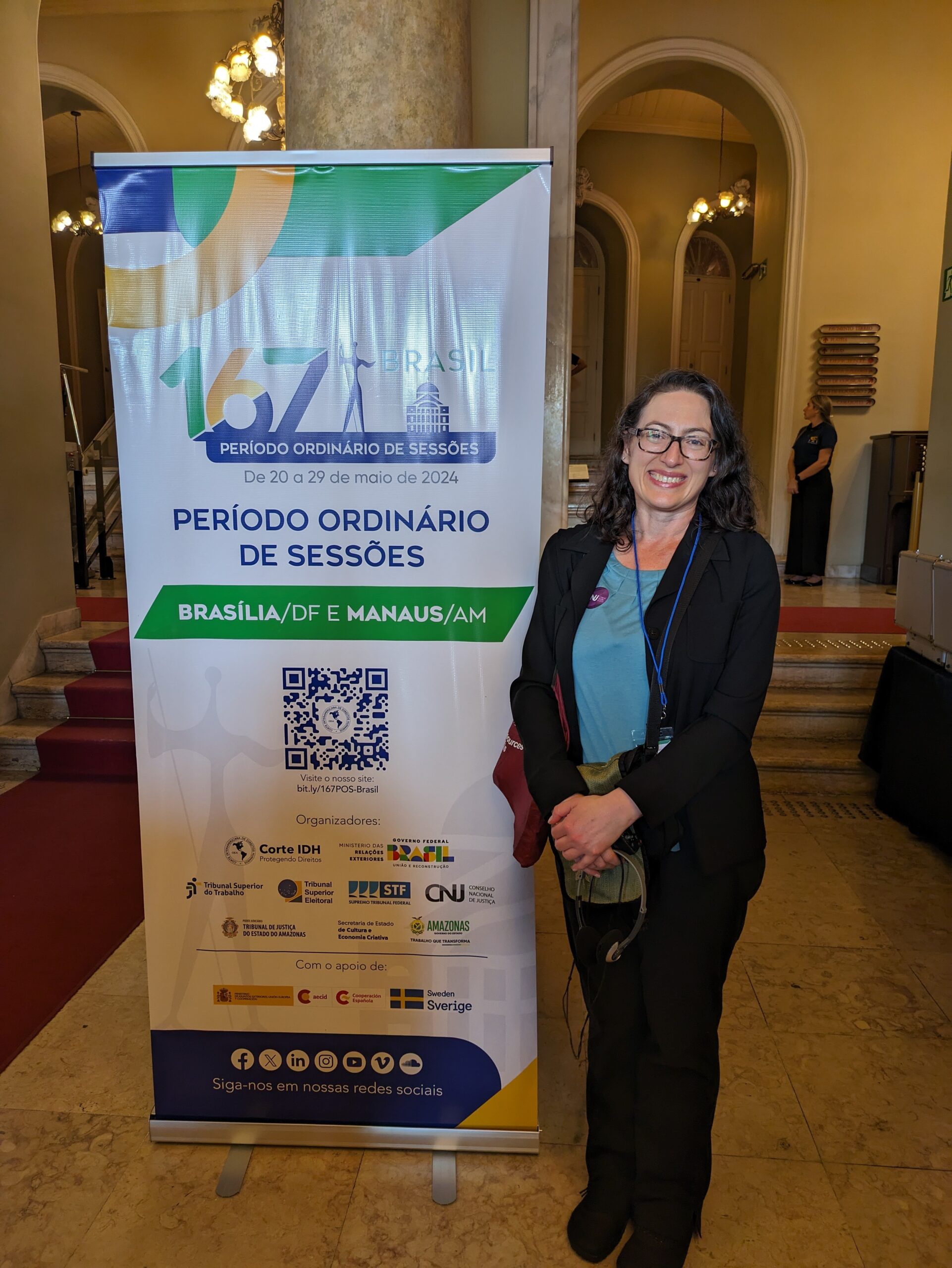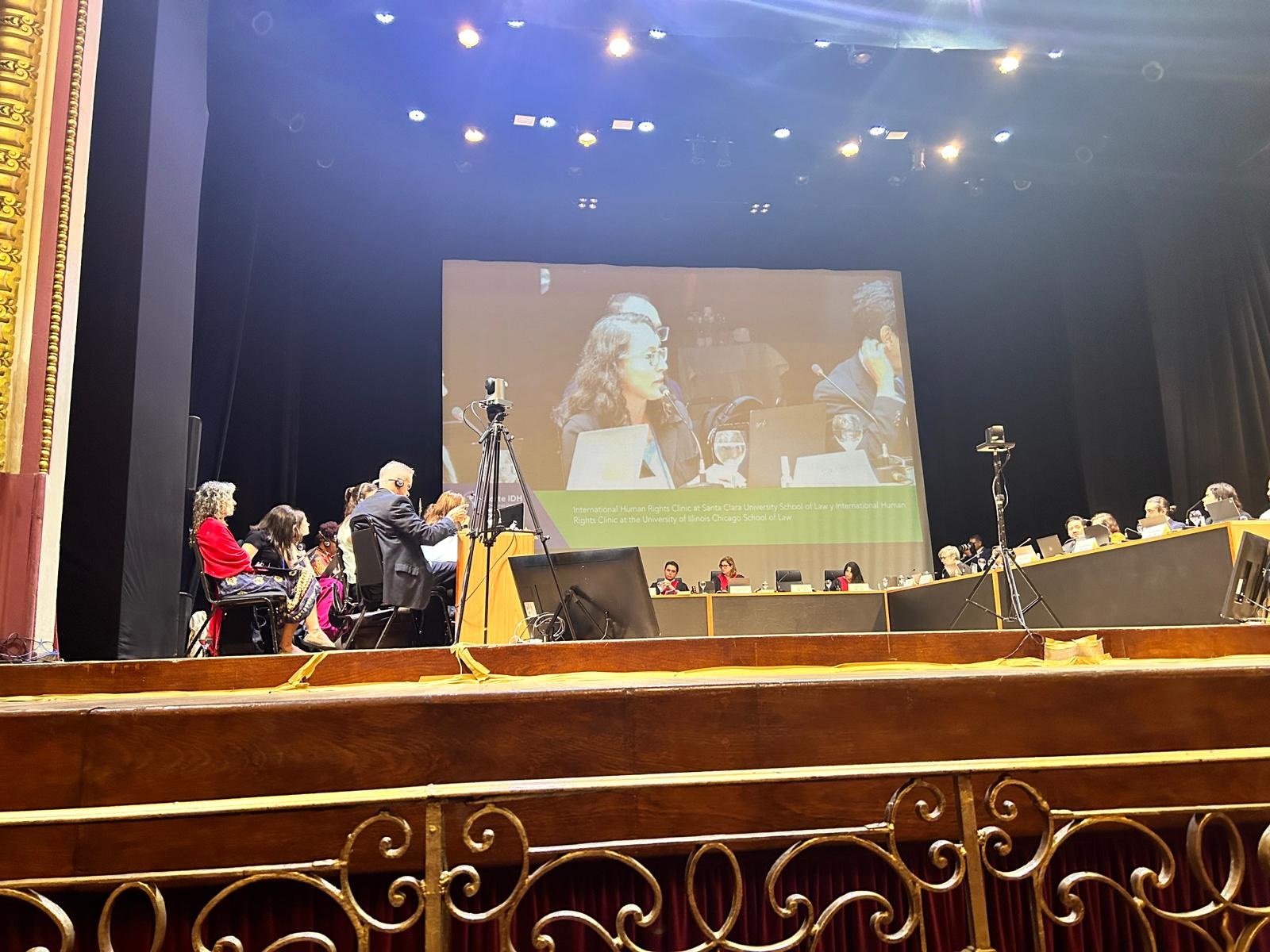 The International Human Rights Clinic (IHRC) at Santa Clara Law played a pivotal role in a landmark hearing focused on climate change and human rights in Brazil. IHRC Deputy Director Britton Schwartz presented crucial observations to the Inter-American Court of Human Rights as it considers issuing an advisory opinion on this important topic. The clinic’s presentation aimed to influence how the Court interprets state responsibilities amidst the climate emergency, potentially setting new legal precedents that could resonate globally. The Court’s eventual opinion is expected to shape climate policy throughout the Americas and globally.
The International Human Rights Clinic (IHRC) at Santa Clara Law played a pivotal role in a landmark hearing focused on climate change and human rights in Brazil. IHRC Deputy Director Britton Schwartz presented crucial observations to the Inter-American Court of Human Rights as it considers issuing an advisory opinion on this important topic. The clinic’s presentation aimed to influence how the Court interprets state responsibilities amidst the climate emergency, potentially setting new legal precedents that could resonate globally. The Court’s eventual opinion is expected to shape climate policy throughout the Americas and globally.
The clinic’s participation follows extensive research and a detailed report advocating for strengthened environmental protections within the Inter-American Human Rights System. Specifically, the clinic’s intervention emphasized government obligations to ensure broad public access to environmental information, participation in environmental decision-making, and access to justice to prevent and remedy environmental harm, as well as the need to protect and support vulnerable groups and environmental human rights defenders in exercising these core rights. In its submissions, the clinic encouraged the Court to draw on the specialized standards set forth in the groundbreaking Escazú Agreement, the first environmental human rights treaty in the Americas. This analysis builds on an extensive report published last year. The clinic at Santa Clara Law collaborated on this work with the International Human Rights Clinic at the University of Illinois Chicago School of Law.
The clinic’s involvement underscores a commitment to advancing human rights in the face of environmental challenges, aligning academic rigor with practical advocacy. Contributions, informed by a comprehensive report and supported by the dedication of IHRC Director Francisco Rivera and Santa Clara Law students, highlighted a proactive approach to legal scholarship and activism. The hope is to shape policies that safeguard vulnerable populations from the impacts of climate change while establishing robust legal frameworks that hold states and industries accountable for environmental stewardship and human well-being. The clinic will continue to partner with affected communities and engage with the Inter-American Human Rights System and other international human rights bodies to promote a rights-based approach to climate and environmental justice. The clinic recently submitted a written report on the right to access to environmental information to the UN Special Rapporteur on human rights and climate change, and is planning to host an event on these issues during the fall climate action summit hosted at Santa Clara University by tUrn .
by a comprehensive report and supported by the dedication of IHRC Director Francisco Rivera and Santa Clara Law students, highlighted a proactive approach to legal scholarship and activism. The hope is to shape policies that safeguard vulnerable populations from the impacts of climate change while establishing robust legal frameworks that hold states and industries accountable for environmental stewardship and human well-being. The clinic will continue to partner with affected communities and engage with the Inter-American Human Rights System and other international human rights bodies to promote a rights-based approach to climate and environmental justice. The clinic recently submitted a written report on the right to access to environmental information to the UN Special Rapporteur on human rights and climate change, and is planning to host an event on these issues during the fall climate action summit hosted at Santa Clara University by tUrn .
The clinic’s work aims to foster broader awareness and engagement among legal practitioners, policymakers, and the public, reinforcing the vital intersection between human rights advocacy and environmental sustainability on a global scale.
More information on the International Human Rights Clinic (IHRC) at Santa Clara Law.